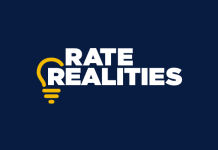Correction: A previous version of this article incorrectly stated the CalChamber is opposed to AB 853 (Maienschein; D-San Diego). The CalChamber is neutral on this bill.
 Seven California Chamber of Commerce job killer bills and other important proposals face a key deadline in the Assembly and Senate Appropriations committees tomorrow. Bills that fail to pass out of these fiscal committees tomorrow can be presumed to be dead for the year.
Seven California Chamber of Commerce job killer bills and other important proposals face a key deadline in the Assembly and Senate Appropriations committees tomorrow. Bills that fail to pass out of these fiscal committees tomorrow can be presumed to be dead for the year.
Below are some of the priority bills that the CalChamber will be monitoring:
Job Killer Legislation
- AB 524 (Wicks; D-Oakland): Exposes employers to costly litigation under the Fair Employment and Housing Act by asserting that any adverse employment action was in relation to the employee’s family caregiver status, which is broadly defined to include any employee who contributes to the care of any person of their choosing, and creates a de facto accommodation requirement that will burden small businesses. In Senate Appropriations Suspense.
- AB 647 (Holden; D-Pasadena): Significantly expands statute related to successor grocery employers, including disrupting ability for independent small stores to join together, expands number of workers covered under the law, and creates a significant new private right of action. In Senate Appropriations Suspense.
- SB 365 (Wiener; D-San Francisco): Discriminates against use of arbitration agreements by requiring trial courts to continue trial proceedings during any appeal regarding the denial of a motion to compel, undermining arbitration and divesting courts of their inherent right to stay proceedings. In Assembly Appropriations Suspense.
- SB 525 (Durazo; D-Los Angeles): Imposes significant cost on health care facilities and any employer who works with health care facilities by mandating increase in minimum wage to $25.00. In Assembly Appropriations Suspense.
- SB 616 (Gonzalez; D-Long Beach): Imposes new costs and leave requirements on employers of all sizes, by more than doubling existing sick leave mandate, which is in addition to all other enacted leave mandates that small employers throughout the state are already struggling with to implement and comply. In Assembly Appropriations Suspense.
- SB 627 (Smallwood-Cuevas; D-Los Angeles): Imposes an onerous and stringent process to hire employees based on seniority alone for nearly every industry, including hospitals, retail, restaurants, and movie theaters, which will delay hiring and eliminates contracts for at-will employment. In Assembly Appropriations Suspense.
- SB 723 (Durazo; D-Los Angeles): Imposes an onerous and stringent process for specific employers to return employees to the workforce for specified industries, including hotels and restaurants that have been disproportionally impacted by this pandemic, and removes guardrails on existing law by making mandate permanent and significantly broadening the applicability of the law. In Assembly Appropriations Suspense.
Job Creator Bill
- SB 301 (Portantino; D-Burbank): Incentivizes production of zero-emission vehicle parts in the state, increasing manufacturing and jobs, by offering a rebate for zero-emissions vehicle conversions. In Assembly Appropriations Suspense.
CalChamber-Opposed Bills
- ACA 1 (Aguiar-Curry; D-Winters): Overbroad constitutional amendment lowers voter approval threshold from two-thirds to 55% to increase taxes for affordable housing and public infrastructure, thereby providing increased tax authority for every government agency in California—not just cities and counties, but thousands of potentially overlapping special districts. In Assembly Appropriations Suspense.
- AB 868 (Wilson; D-Suisun City): Requires State’s Fair Political Practices Commission (FPPC) to set up massive new database and bureaucracy to manage and compile most digital advertisements, which can already be tracked via Secretary of State. In Senate Appropriations Suspense.
- AB 1394 (Wicks; D-Oakland): Seeks to impose liability on platforms that are actively combatting harmful content. Requires platforms to “permanently block” specific photographs or videos, or versions or reproductions that is “child sexual abuse material” from being viewable on their platforms. Imposes statutory damages of up to $250,000 per violation for failure to meet this standard, which cannot be met technologically. Also imposes civil damages of $5 million for any platform that knowingly or recklessly deploys “a system, design, feature, or affordance” that is a “substantial factor” in causing minors to be victims of commercial sexual exploitation. Negligent violations are subject to damages of no less than $1 million, and up to $4 million. Raises First Amendment issues by being overly vague and by creating incentives for platforms to overly-censor content to avoid liability and is federally preempted under Section 230. In Senate Appropriations Suspense.
- SB 244 (Eggman; D-Stockton): Forces manufacturers of devices and equipment to treat any alleged repair attempt the same as the manufacturer or authorized retailer and allows proprietary equipment and trade secrets to be shared with the public. In Assembly Appropriations Suspense.
- SB 253 (Wiener; D-San Francisco): Imposes a mandatory climate tracking, and auditing on climate emissions that will fall heavily on all California businesses, impacting competitiveness and increasing costs. In Assembly Appropriations Suspense.
- SB 261 (Stern; D-Canoga Park): Requires any business with revenues over $500 million annually to prepare a climate financial risk assessment on its holdings including any supply chain assets. In Assembly Appropriations Suspense.


